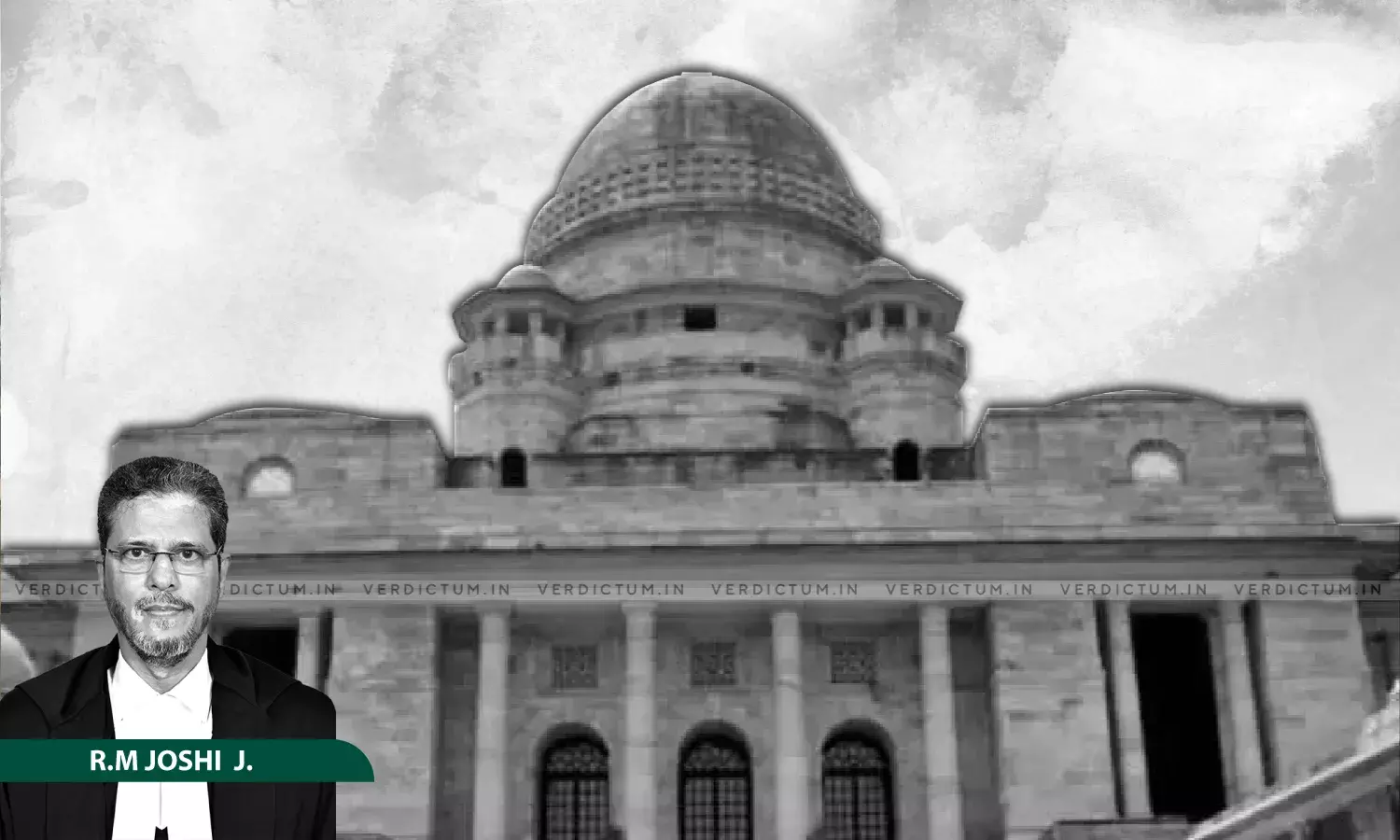Question Of Paternity Does Not Arise Unless Father Makes Specific Case Of No Access To Wife: Bombay High Court Dismisses Plea Of DNA Test
The Bombay High Court dealt with the writ petition filed against the order of the family court allowing the husband to conduct DNA Profiling Test to decide legitimacy of the child.

Justice R.M. Joshi, Bombay High Court
The Bombay High Court observed that unless the husband disputes that he is not the father of the child and makes out a specific case of having no access to wife and rebuts presumption under Section 112 of the Indian Evidence Act, the question of determining the paternity of the child does not arise.
A Writ Petition was filed by the wife alleging that the trial court has committed an error in allowing the application of the husband seeking DNA Profiling Test for deciding legitimacy of the child.
The Bench of Justice R.M. Joshi observed, “Though, the judgment cited supra indicates importance and even accuracy of scientific DNA Profiling Test, still question arises as to whether the presumption of conclusive proof of legitimacy can be dislodged on this ground, when father does not satisfy the condition of he having no access to mother of the child during relevant time. Secondly, if there is allegation against the wife that she lives adulterous life, the said fact can be proved by any other evidence than calling upon the child to undergo the paternity test. The Supreme Court (supra) has held that the test can not be directed unless it is eminent to do so. The said test, therefore, must be passed in order to call upon undergoing of DNA test by a child.”
Advocate M.P. Kariya represented the Petitioners, while Advocate S.S. Bhalerao represented the Respondents.
Case Brief
The parties, husband and wife, got married in 2011 and a child was born in 2013 out of the wedlock. However, the wife left the matrimonial home when she was carrying a pregnancy of three months.
The wife contended that the order to conduct DNA Profiling Test in order to decide paternity can be directed only in exceptional cases and the present case is not exceptional. Further, it is not the case of the husband that he had no access to the wife and that there were no physical relationships between them.
While the husband contended that the provisions of Section 112 of the Indian Evidence Act were enacted much before the scientific advancement and when the scientific full-proof method is in order to decide the paternity of the child, such request should not be declined.
Court’s Analysis
The Court opined that the Supreme Court has also cautioned the Courts that only if the test is eminently needed then such DNA tests can be directed to be conducted. It is also expected that the Court is required to balance the interest of both the parties.
The Court observed, “Even, if it is accepted for the sake of argument that the wife conceded the said request, still it was absolutely obligatory for the Court to consider best interest of the child…In case of a minor child, he/she is not capable of taking decision of agreeing to the test or refusal thereof. More particularly, when the parents of such child are fighting against each other and most of the times, the child is a tool, in such fight, the Court must become the custodian of rights of minor child. There would be more responsibility on the Court than to just decide the lis/disputed questions between parties.”
The Court noted that it is not an eminent case of passing an order of DNA Test.
Accordingly, the Petition was allowed.
Cause Title: XYZ V. ABC (Neutral Citation:2025:BHC-NAG:6350)
Click here to read/download Judgement


